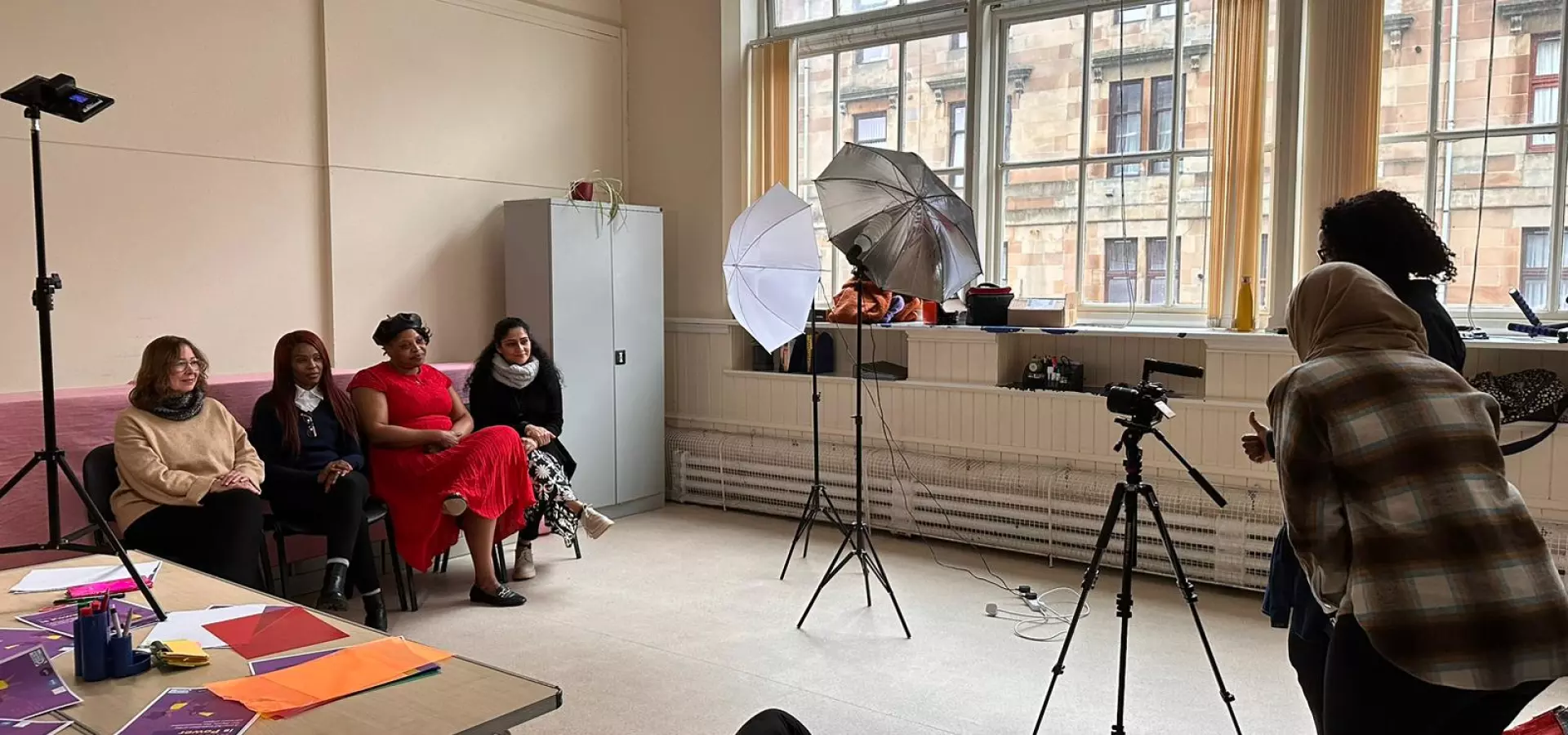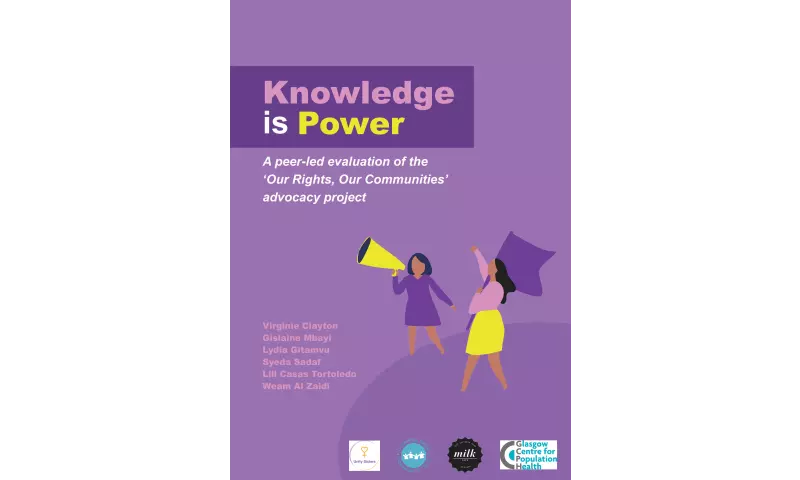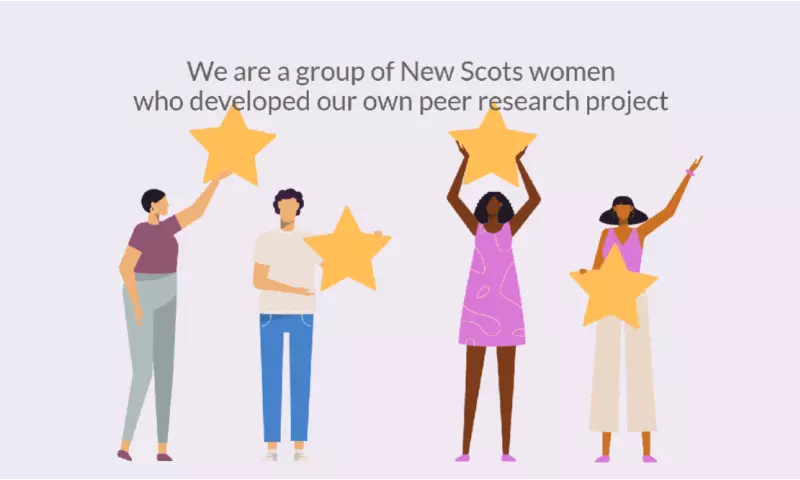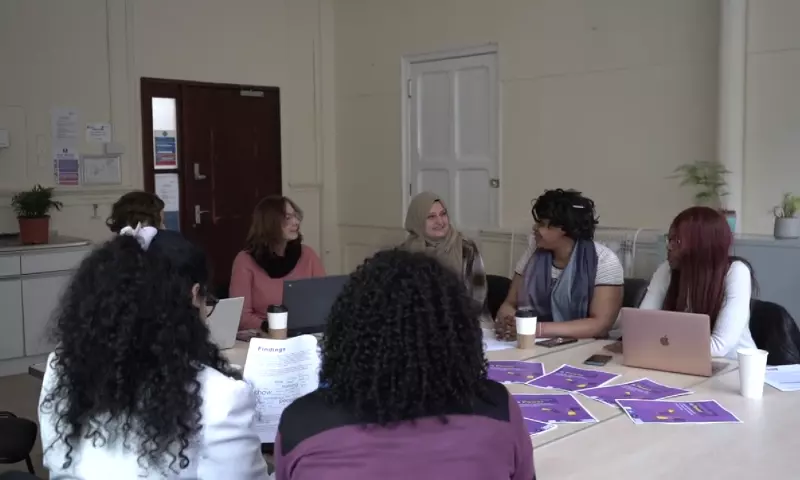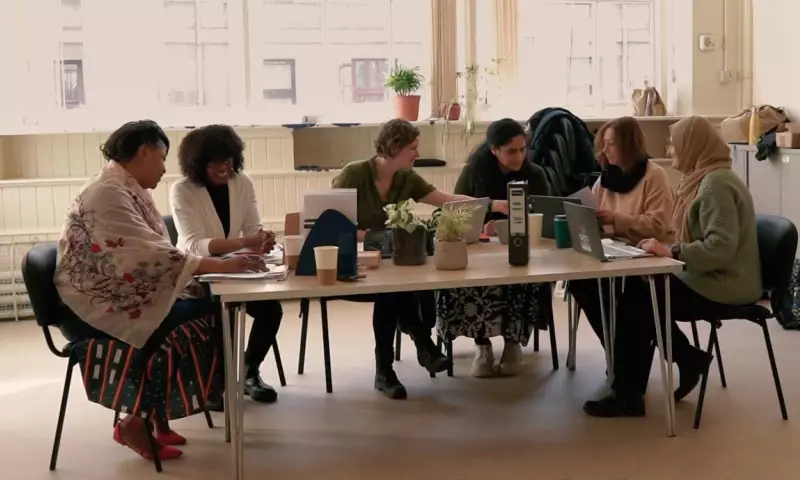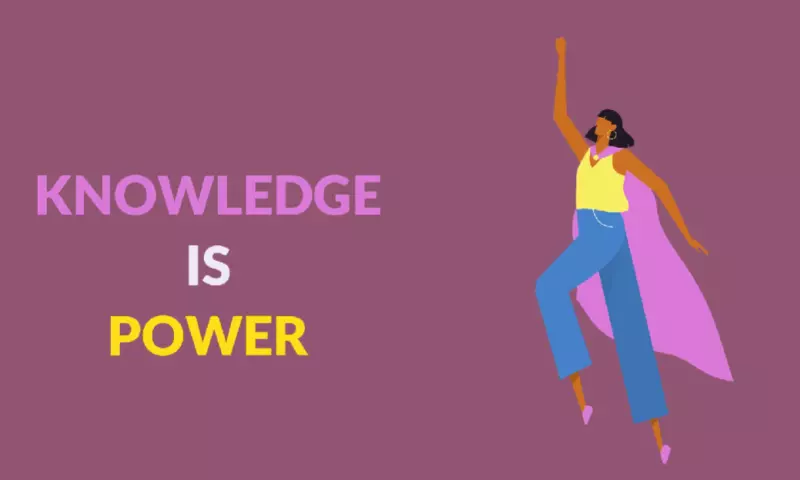'Knowledge is Power' peer-led evaluation
Communities, Inequalities
Nov 2021 - Apr 2023
‘Knowledge is Power’ evaluated the ‘Our Rights, Our Communities’ advocacy project using peer research methods.
The ‘Our Rights, Our Communities’ project set out to develop a unique model of community-based, New Scots women-led advocacy over 2021 and 2022. New Scots is a term used to describe those who live in Scotland but who originated from elsewhere in the world. As part of this project, a group of women from asylum-seeker and refugee backgrounds, who were experiencing discrimination and racism, undertook training in advocacy, with a view to developing a local, New Scots women-led peer support network.
This work was a partnership project between GCPH, Govanhill Baths Community Trust: Community Action, Unity Sisters and Milk Café.
 Project objectives
Project objectives
- To conduct a peer-led evaluation of the ‘Our Rights, Our Communities’ project that would:
a) Explore the issues being faced by New Scots women and their families in Glasgow.
b) Enable the project leaders and participants to understand and assess the ‘Our Rights, Our Communities’ project according to their own objectives.
c) Provide evidence to the wider community on the impacts and benefits of peer-led advocacy for New Scots.
d) Make the voices of New Scots women central to the evaluation outputs. - To document the process of carrying out peer-led research to:
a) Explore and reflect on the group experiences.
b) Capture these experiences, the challenges and the benefits of peer-led research and evaluation for the benefit of other community groups and researchers considering undertaking work using similar approaches.
 What is involved
What is involved
A group of six New Scots women involved in the ‘Our Rights, Our Communities’ project carried out the evaluation, under the mentorship of a researcher from GCPH. The evaluation echoed the principles and ethos of the project itself. The ‘Our Rights, Our Communities’ project puts the needs of New Scots women at the heart and head of the struggle for equality. The women themselves are at the forefront in delivering anti-racism and equality work, rather than having equality done for them. The ‘Knowledge is Power’ evaluation therefore was conducted as a peer-led research project. Peer research is a methodology that puts those with lived experience of the subject being researched in control of the research.
The group collectively decided on their research questions and methods and conducted the data collection and analysis. They authored the final research report and created other outputs such as animations, posters and blogs to disseminate the findings of the work to other New Scots women and their wider communities.
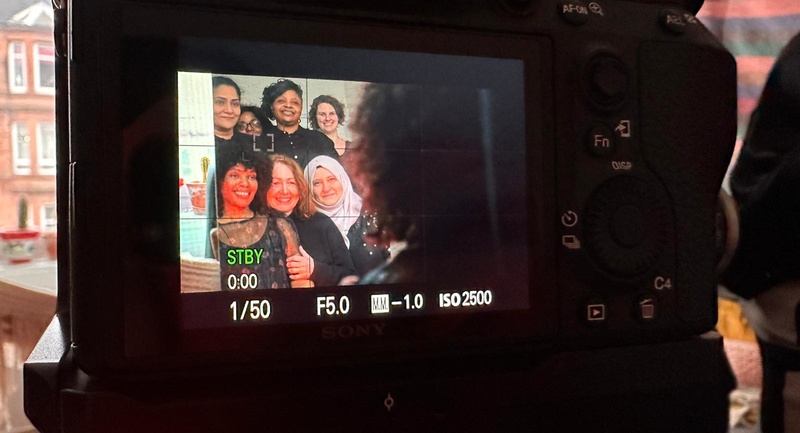
 Findings & outcomes
Findings & outcomes
- The New Scots women involved in the ‘Our Rights, Our Communities’ project were overall confident in and of themselves. However, certain situations and experiences in the wider world could undermine this confidence and leave them feeling powerless. This affects their access to services and their mental wellbeing.
- A peer-led approach to evaluation has the potential to bring the “unedited voices” of those often marginalised from decision-making processes to the fore.
a) It allows research to focus on the topics and aspects of the problem most pertinent to those experiencing the issues at hand.
b) It produces research outputs that incorporate and celebrate diverse voices and means of expression.
c) The experiences and skills gained by taking part in peer-led research help to build confidence and can be disseminated through the wider community (with further support from professional researchers).
d) Peer-led research is time intensive and requires commitment to build strong and trusting relationships from all involved.
Recommendations
- Advocacy services struggle to meet the needs of New Scots women, especially those with an asylum-seeker or refugee background. Peer advocacy and support networks are needed to help women regain their confidence and power in exercising their rights.
- New Scots women are confident and motivated to support one another, but they need training and skill-sharing to enable them to offer the right support in the right way.
 Project outputs
Project outputs
Publications & Documents
News
Following the end of the evaluation, a film was created to capture the experiences of carrying out peer research. A professional filmmaker was commissioned to support the creation and co-production of the film to tell the story of the project. The peer researchers also produced a short animation detailing their research findings.
It Will Start with Me
Knowledge is Power (animation)
 Further resources & reading
Further resources & reading
Different language versions of the animation are available below. These were created and recorded by the peer researchers for use in their communities.
Kinyarwanda: This voiceover was recorded by Epiphanie, originally from Rwanda
Urdu (اردو): This voiceover was recorded by Syeda, originally from Karachi
Spanish (Español): This voiceover was recorded by Lill Casas, originally from Venezuela
French (Français): This voiceover was recorded by Gislaine, originally from Congo
Arabic (اللغة العربية) This voiceover was recorded by Weam, originally from Iraq
English: This voiceover was recorded by Lydia, originally from Africa
